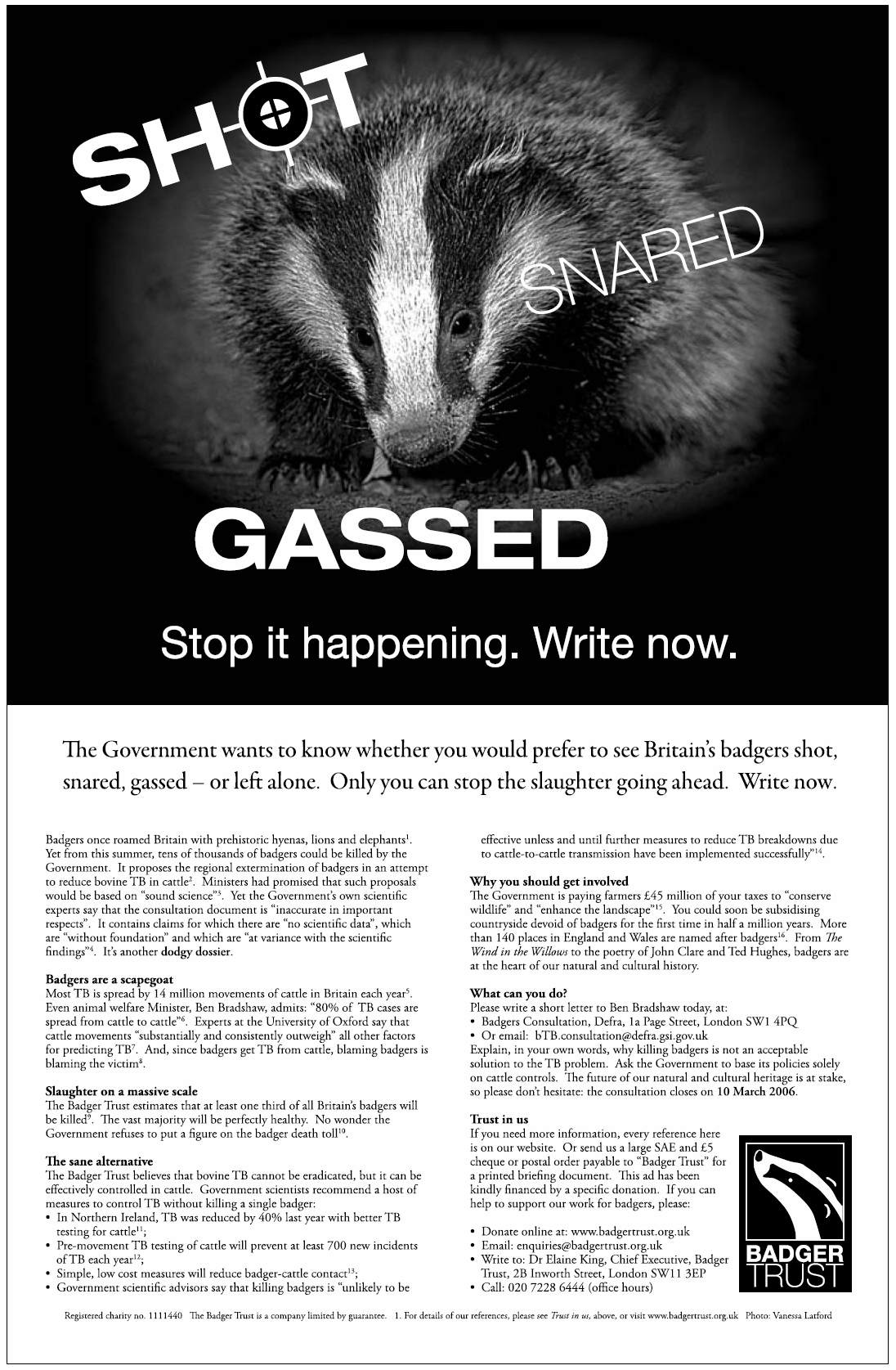|
learning > grammaire anglaise - niveau avancé
syntaxe
formes verbales
passif
séquences passives
beauxiliaire
+
verbeau
participe passé
ellipse de beauxiliaire
[
Ø beauxiliaire ]
+
verbeau
participe passé
Cette ellipse est fréquente
dans les titres d'articles :
Gunman admitted
killing Toni-Ann,
court
toldparticipe
passé
=
Gunman admitted
killing Toni-Ann,
court [
Ø = is ]
toldparticipe
passé
· Trial opens of drug
dealer accused of double murder
· Confessions 'made to girlfriends and cellmates'
https://www.theguardian.com/uk/2006/jul/06/
ukcrime.ukguns
Rappelons
que le
verbe irrégulier tell
a
3 formes,
dont 2 identiques
:
tell
(base verbale)
told
(passé)
told (participe
passé)
Rappelons aussi ceci
:
1 / 2 - Tous les
verbes réguliers
ont la même finale (-ed)
au
passé
et
au
participe passé.
Exemple de
verbe régulier :
kill
(base verbale =
forme non conjuguée du verbe)
killed
(passé, également appelé
prétérit)
killed
(participe
passé)
2 / 2 - Certains
verbes irréguliers
ont la même forme
au
passé et au
participe passé.
Exemples de
verbe irrégulier
avec
passé et participe passé
identiques :
tell
(base verbale)
told
(passé)
told
(participe
passé)
shoot
(base verbale)
shot
(passé)
shot
(participe
passé)
Pour un lecteur / auditeur
qui n'a pas l'habitude
de la presse,
l'ellipse de beauxiliaire
peut être source de
confusion
et même de contre-sens
lorsqu'il lit / entend un
énoncé passif
avec
ellipse de
beauxiliaire
:
7 People [
Ø = areauxiliaire ] Shotparticipe
passé,
3 Fatally,
on Violent Day in Newark
beauxiliaire
réapparaît dans le premier paragraphe :
Seven people were shot,
three of them
fatally,
in an explosion of violence
in Newark on Thursday evening.
7 People Shot, 3
Fatally, on Violent Day in Newark,
NYT,
23 December 2010,
https://www.nytimes.com/2010/12/24/
nyregion/24newark.html
Ceci étant posé,
revenons à l'énoncé :
Gunman admitted
killing Toni-Ann,
court [
Ø = is ]
toldparticipe
passé
Dans cette
structure passive
avec ellipse de
beauxiliaire,
attention à ne pas prendre
le passif pour de l'actif,
ce qui aboutirait
à
un contre-sens :
ce n'est pas le
tribunal
qui "raconte" (action -> actif)
que le tireur a
reconnu
avoir tué Toni-Ann,
c'est au contraire
(passif)
le tribunal qui
apprend cette information,
comme le confirme le
second sous-titre,
relatif aux aveux du
tireur :
· Confessions
'made to
girlfriends and cellmates'
Traduction
explicative de
court [
Ø = is ]
toldparticipe
passé :
le tribunal a été
informé
que le tireur a reconnu...
Pour éviter le
contre-sens,
il ne faut donc pas
confondre
passif et actif :
verbeau
participe passé
dans une structure passive
avec
ellipse de
beauxiliaire
-
Gunman admitted
killing Toni-Ann,
court [
Ø = is ]
toldparticipe
passé -
≠
verbeconjugué
au
passé
dans une structure active
:
He toldpassé
irrégulier actif me
who did it.
autres énoncés
avec ellipse de
beauxiliaire
Forme passive pleine
( beauxiliaire
+ verbeau
participe passé )
à la Une du Guardian,
le 22 février 2021 :
Hope for normality
as Pfizer vaccine
is rolled out across nation
G
22 February 2021
screenshot dans prochaine édition
Un clic sur ce titre affiche l'article,
avec un titre similaire,
mais à la forme contractée du
passif
(
Ø
+
verbeau
participe passé ) :
Hope for normality
as Pfizer vaccine
Ø
rolled out
to priority groups
across nation

Ellipse de beauxiliaire
Comme le complément d'agent (by +
N),
beauxiliaire
n'apparaît souvent pas
dans les :
-
titres d'articles >
voir ci-dessus > court [
Ø = is ]
told
- séries de
verbes au
passif
(série
verbalepassif)
ellipse
fréquente
de
beauxiliaire
dans les titres d'articles
et les slogans
Michigan high
school shooter
[
Ø = is ]
sentenced
to Life
in Prison without Parole
December 8, 2023
NPR

The Guardian
p. 36 28 February 2006

The Guardian
p. 1 16 December 2008
http://digital.guardian.co.uk/guardian/2008/12/16/pdfs/gdn_081216_ber_1_21469104.pdf

Middle East
5 [ ellipse de
beauxiliaire
> are ]
Killed
in Tel Aviv and West Bank
by Palestinian Attackers
NOV. 19, 2015
The New York Times
By ISABEL KERSHNER
JERUSALEM — Five people were killed on Thursday
in two stabbing and shooting attacks carried out
by Palestinian assailants in Tel Aviv and the West Bank,
according to the Israeli authorities,
in a renewed burst of deadly violence
that came after a few days of relative calm.
(...)
5 Killed in Tel Aviv and West Bank by Palestinian Attackers,
NOV. 19, 2015,
https://www.nytimes.com/2015/11/20/
world/middleeast/palestinian-stabs-israelis-in-tel-aviv.html
7 People
[ ellipse
de
beauxiliaire > are ] Shot,
3 Fatally, on Violent Day in Newark
December 23, 2010
The New York Time
By ANAHAD O’CONNOR
and KAREEM FAHIM
Seven people were shot,
three of them
fatally,
in an explosion of violence
in Newark on Thursday evening.
The bloodshed was part of a spate of shootings
and violent carjackings — including the carjacking
of a state official — in the city over the last month.
7 People Shot, 3
Fatally, on Violent Day in Newark,
NYT,
23.12.2010,
https://www.nytimes.com/2010/12/24/
nyregion/24newark.html
passif
avec ellipse de
beauxiliaire
attention aux
contre-sens !

The Guardian p. 1
6 July 2007
Public
[ ellipse de
beauxiliaire
> is ] Said
to Be Misled
[ infinitif passif ]
on Use of
the Patriot Act
September
21, 2011
The New York Times
By CHARLIE SAVAGE
WASHINGTON — Two United States senators on Wednesday accused the Justice
Department of making misleading statements about the legal justification of
secret domestic surveillance activities that the government is apparently
carrying out under the Patriot Act.
The lawmakers — Ron Wyden of Oregon and Mark Udall of Colorado, both of whom are
Democrats on the Senate Intelligence Committee — sent a letter to Attorney
General Eric H. Holder Jr. calling for him to “correct the public record” and to
ensure that future department statements about the authority the government
believes is conveyed by the surveillance law would not be misleading.
“We believe that the best way to avoid a negative public reaction and an erosion
of confidence in U.S. intelligence agencies is to initiate an informed public
debate about these authorities today,” the two wrote. “However, if the executive
branch is unwilling to do that, then it is particularly important for government
officials to avoid compounding that problem by making misleading statements.”
The Justice Department denied being misleading about the Patriot Act, saying it
has acknowledged that a secret, sensitive intelligence program is based on the
law and that its statements about the matter have been accurate.
Mr. Wyden and Mr. Udall have for months been raising concerns that the
government has secretly interpreted a part of the Patriot Act in a way that they
portray as twisted, allowing the Federal Bureau of Investigation to conduct some
kind of unspecified domestic surveillance that they say does not dovetail with a
plain reading of the statute.
The dispute has focused on Section 215 of the Patriot Act. It allows a secret
national security court to issue an order allowing the F.B.I. to obtain “any
tangible things” in connection with a national security investigation. It is
sometimes referred to as the “business records” section because public
discussion around it has centered on using it to obtain customer information
like hotel or credit card records.
But in addition to that kind of collection, the senators contend that the
government has also interpreted the provision, based on rulings by the secret
national security court, as allowing some other kind of activity that allows the
government to obtain private information about people who have no link to a
terrorism or espionage case.
Justice Department officials have sought to play down such concerns, saying that
both the court and the intelligence committees know about the program. But the
two lawmakers contended in their letter that officials have been misleading in
their descriptions of the issue to the public.
First, the senators noted that Justice Department officials, under both the Bush
and Obama administrations, had described Section 215 orders as allowing the
F.B.I. to obtain the same types of records for national security investigations
that they could get using a grand jury subpoena for an ordinary criminal
investigation. But the two senators said that analogy does not fit with the
secret interpretation.
The senators also criticized a recent statement by a department spokesman that
“Section 215 is not a secret law, nor has it been implemented under secret legal
opinions by the Justice Department.” This was “extremely misleading,” they said,
because there are secret legal opinions controlling how Patriot Act is being
interpreted — it’s just that they were issued by the national security court.
“In our judgment, when the legal interpretations of public statutes that are
kept secret from the American public, the government is effectively relying on
secret law,” they wrote.
That part of the dispute appeared to turn on semantics. The department said that
while the national security court’s opinions interpreting the Patriot Act are
classified, the law itself is public.
Public Said to Be Misled on Use of the Patriot Act,
NYT,
21.9.2011,
http://www.nytimes.com/2011/09/22/
us/politics/justice-dept-is-accusedof-misleading-public-
on-patriot-act.html - broken link
Reid
[ ellipse de
beauxiliaire
> is ] urged
to free
thousands
as jail conditions worsen
Overcrowding 'puts public at risk'
Foreign
prisoners await deportation
January 29,
2007
The Times
Richard Ford
and Frances Gibb
Britain’s
jail watchdog will heap further pressure on the Home Secretary this week by
giving warning that prison overcrowding is putting the public at risk.
Anne Owers will say that the overcrowding in England and Wales is hitting
rehabilitation programmes intended to make offenders less likely to return to a
life of crime.
She will also highlight the position of foreign national prisoners who remain in
prison awaiting deportation despite having served their sentences.
John Reid, the Home Secretary, today admits that problems at his department will
continue to be undermined by new crises and embarrassments.
He writes in The Guardian: “If you renovate a house you start by taking the
wallpaper off. It is only then that you discover more problems. Indeed I expect
more problems. Being Home Secretary is my biggest challenge. But it isn’t
mission impossible.”
Last night it emerged that he had suffered a further setback in his efforts to
speed up the deportation of prisoners from EU states. Poland is blocking
attempts to allow transfers without a prisoner’s consent. An EU-wide deal would
free 1,500 places.
Ms Owers, the Chief Inspector of Prisons, will also express concern at the
number of prisoners being given indeterminate sentences — far more than the
Government estimated.
Her intervention comes after an increase of 627 prisoners plunged the Home
Office into another crisis and the Lord Chief Justice, Lord Phillips of Worth
Matravers, tried to calm the furore over Mr Reid’s statement on sentencing.
In her annual report, Ms Owers will say that overcrowding makes rehabilitation
more difficult as resources are spread more thinly and offenders are moved from
jail to jail. She will highlight the plight of those with mental illnesses or
drug addictions, saying that staff are too overstretched to cope with them. And
she will argue that the number of mentally ill people being jailed is making
overcrowding worse.
Lord Woolf, the former Lord Chief Justice, urges Mr Reid in The Times today to
adopt the “nuclear option” of releasing thousands of non-dangerous prisoners to
ease overcrowding. That is a measure that Mr Reid will take only as a last
resort.
He also calls on Mr Reid to repeal or suspend laws that “force judges to use
more and longer sentences than are necessary”. But he offers support for Mr
Reid’s move last week to bring to the attention of the courts the state of the
prisons and to restate guidelines that prison should be reserved for the
dangerous, violent, sexual and prolific offenders.
Lord Woolf says that it would have been a “dereliction of duty” for the Home
Secretary and Lord Chancellor not to issue their statement and dismisses as
“muddled thinking” the suggestion that the move represented an encroachment on
the independence of the judiciary.
Lord Phillips issued a statement saying it was proper for Mr Reid to remind
judges of the state of prisons. He said Mr Reid’s statement about prison
overcrowding had given a helpful summary and was consistent with sentencing
legislation. “But [it] carries the implication that ministers hoped that judges
would be particularly careful to consider, in each individual case, whether
there was an appropriate means of disposal that did not involve immediate
custody,” he said.
He added that in many cases custody was inevitable, but he said that where
judges had a choice as to sentence there was the well-established authority of
the Court of Appeal that it was appropriate to have regard to jail overcrowding.
Latest figures show that 51,800 of 90,000 offenders given an immediate custodial
sentence in 2005 received six months or less. It is that huge number of
offenders being jailed for very short periods that is causing concern as there
is insufficient time for effective work to be done with them.
Many in the prison system believe that those who are not prolific offenders
should be punished in the community.
The Home Office had hoped that its reform of sentencing, which has led to longer
sentences for the dangerous and violent, would be matched by fewer non-violent
offenders being jailed. John Denham, the Labour chairman of the Commons Home
Affairs Committee, said that radical thinking about sentencing was “desperately”
needed — including more effective non-custodial sentences.
Mr Denham, a former Home Office minister, added: “We have got to make community
punishments a more demanding and onerous punishment so that if somebody doesn’t
go to prison it is still seen by the public as an adequate response to a lower
level of crime.”
Reid urged to free thousands as jail conditions worsen,
Ts,
29 January 2007,
http://www.timesonline.co.uk/
article/0,,2-2572266,00.html - broken link
Voir aussi > Anglonautes >
Grammaire anglaise
explicative - niveau avancé
passif
impératif actif / passif
passif-ing
syntaxe >
séquences auxilaires /
verbales :
active ≠ passive,
affirmative ≠ négative,
interrogative,
interro-négative,
infinitive,
impérative,
exclamative,
comparative,
elliptique,
résultative,
hypothétique
syntaxe >
autres séquences :
toviseur,
ellipse,
SVO, OSV,
séquences
-ing,
séquences
-en,
clivée,
as...as
|